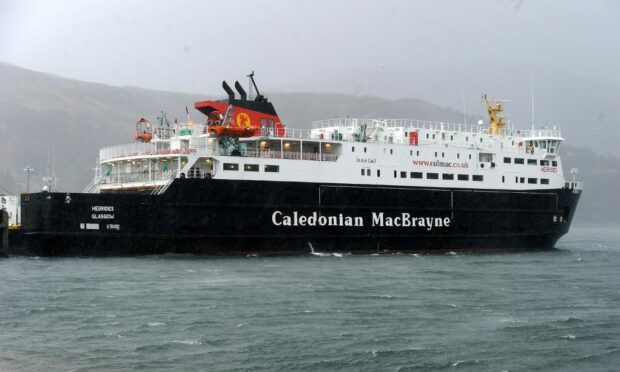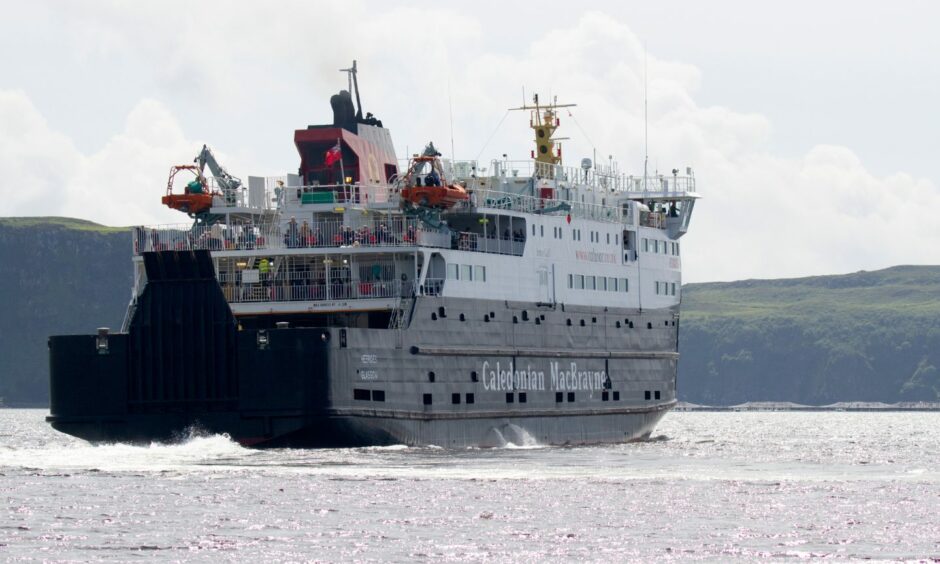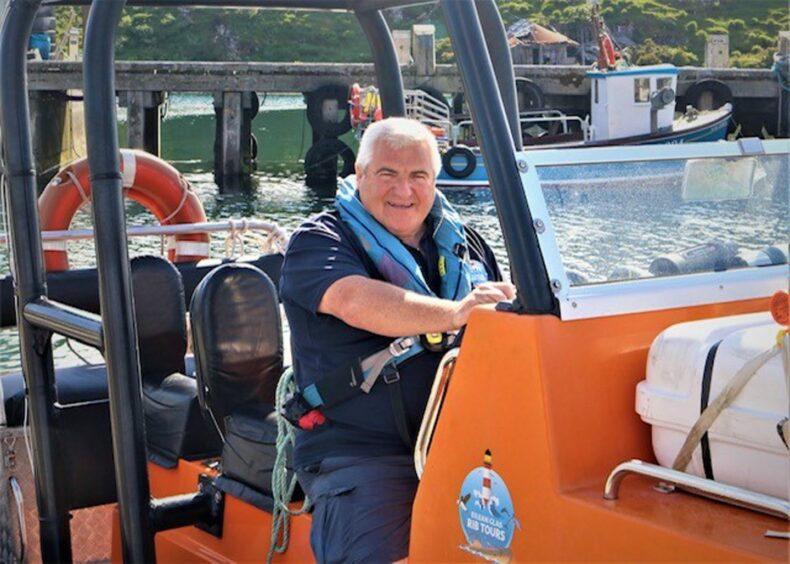Islanders have claimed they lost out on £8.5 million over the summer due to a decision not to operate a mezzanine deck on ferries.
The deck – an adjustable car ramp which increases car capacity by 20 – was not in operation on the Uig, Lochmaddy and Tarbert services.
Members of the Harris Development claim this decision by CalMac and Transport Scotland means there were 10,000 fewer vehicles able to travel this summer than in 2019.
Now the group is stepping up the pressure to ensure the mezzanine returns next year after learning plans at the moment are for limited use of the deck.
Chairman Kenny MacLeod has written to Transport Minister Jenny Gilruth, seeking a meeting to discuss the issue.
In his letter, he calculates that due to each car being worth several hundred pounds to the island’s economy, the loss of revenue equals around £8.5m.
He writes as two new ferries are not scheduled until 2026, this will mean a hit of around £33m in total.
The data shows the Uig routes are alone in the reduction of vehicles transported.
However, it should be noted, the year 2020 has been removed from the data set due to a significant reduction across all ferries due to the lockdown.
Why did CalMac stop operating the mezzanine deck?
In early 2021, due to the reduction in demand for ferries over Covid, CalMac stopped operating the mezzanine deck on the MV Hebrides.
The mezzanine deck allows for around 20 more cars to be loaded, instead of approximately 80. This means there is around a 20% reduction in capacity if it is not operating.
The decision to stop operating the mezzanine was controversial at the time.
In November 2021, the Western Isles council called for the mezzanine deck to be reinstated – while P&J columnist Iain Maciver claimed it was a cost-cutting exercise.
But CalMac insisted they can’t always deploy mezzanine decks due to the length of time it takes.
They say it can cause sailings to be delayed or might cause them to break the “strict rules” governing hours of rest for the crew.
CalMac has been fined in the past for not meeting reliability and punctuality measures.
Islanders: ‘Ferry causing irreparable damage to our economy’
As well as being the chairman of the not-for-profit Harris Development Group, Mr MacLeod operates an island boat touring company.
He is one of the many islanders in the tourism industry concerned about the impact of the reduced ferries on the economy.
In his letter he said to Ms Gilruth: “We would urgently ask that you meet with us in order to discuss this deplorable situation and to find a way forward that stops causing irreparable damage to our economy.
“The Scottish Government has pumped an additional £150m into the Inverclyde economy to protect the jobs and skilled workforce at Ferguson’s.
“Yet there is a reluctance to even provide £816,000 to protect a similar number of jobs in Harris and Uist and allow a publicly funded asset to be used to its maximum capacity.”
MV Hebrides was due to be replaced
Part of the problem is CalMac’s fleet is aging and becoming more unreliable.
The MV Hebrides has served Harris since it was built in 2000 by Ferguson Marine, the same shipyard that is now the centre of the Scottish ferries scandal.
Two ships are currently still uncompleted at the now government-owned shipyard, five years late and £150m over budget.
One of the ships was already meant to be operating the Uig, Lochmaddy and Tarbert triangle route.
Known as “Hull 802”, the ship is still under construction at Port Glasgow. Its delivery was delayed once again in September, now due for the first quarter of 2024.
But this plan was scrapped in October.
Now two alternative vessels will be coming to the Uig triangle instead, scheduled for 2026.
Transport Scotland: ‘We will give full consideration to letter’
A Transport Scotland spokeswoman said: “The Minister for Transport met with Harris Development Group in April when she was in Harris and has also engaged directly with group members regularly.
“The minister will, of course, give full consideration to the contents of this letter and will respond in due course.
“Since this government was elected in May 2021, we have bought and deployed an additional vessel in MV Loch Frisa in June, made significant progress in the construction of vessels 801 and 802.
“We have also commissioned two new vessels for Islay, progressed investment in essential harbour infrastructure, and now we are delivering a further two new vessels.”
In response to the figures put forward by Mr MacLeod, CalMac’s chief executive Robbie Drummond said 2019 had been their busiest ever year, and that the 2022 figures were still reflecting the Covid recovery.
He also pointed to repeated cancellations due to the weather.




Conversation